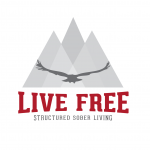LIVE FREE STRUCTURED SOBER LIVING
Drug Addiction Rehab Services
At Live Free Structured Sober Living, we use a client-focused approach that allows us to meet the needs of everyone who comes into our care. Our goal is to provide the support and tools that are truly transformational, and our staff is committed to helping individuals achieve true recovery.
We offer a full continuum of care to help every patient experience a safe, long-term recovery from drug and alcohol addiction.
Substance abuse disorders affect more than 20 million people in the United States.
More Statistics on New Hampshire Drug and Alcohol Abuse
When left untreated, substance abuse can lead to numerous problems, including job loss, financial distress, impaired relationships, health problems, and death.
LEARNING
How Does Drug Rehab Treatment Work?
Drug rehab treatment programs at Live Free Structured Sober Living offer a variety of approaches to meet the individual needs of each patient and give them the best chances of success.
Stages of Drug Rehabilitation
Inpatient Programs
Patients whose substance abuse is severe enough to have negatively affected their career, education, or personal relationships may benefit most from an inpatient treatment program. Inpatient drug rehab programs, which can be short- or long-term, are also especially beneficial for individuals who lack a supportive home environment. Inpatient programs allow them to build new skills and develop a new daily routine in a safe environment.
Inpatient drug rehab treatment centers also offer other beneficial services, such as yoga classes, exercise facilities, and nutritious meals, all of which can complement the recovery process.
Partial Hospitalization Programs
Partial hospitalization programs, also often referred to as day treatment, offer the same therapeutic services found in inpatient programs, but without requiring residency. Partial hospitalization programs are more intensive than traditional outpatient treatment programs and may involve treatment for several hours a day, three to five days a week. Partial hospitalization programs can be beneficial for patients in need of a highly structured and integrated treatment program but do not require 24-hour medical supervision.
Outpatient Drug Treatment
Outpatient treatment programs are less intensive and are designed to work around patients’ busy schedules. Outpatient drug rehab is often offered on a daytime or evening basis, which allows patients to continue with their normal work, school, or family lives.
Patients may enroll in an outpatient program from the outset or may transition to an outpatient program after the successful completion of an inpatient treatment program.
LEARNING
What Is Included in Drug Rehab Treatment?
Initial Assessment
An initial assessment with a substance abuse counselor will help determine the best level of care and treatment modalities to meet your individual needs.
Medical Detox Referral
Withdrawing from drugs and alcohol can be difficult and dangerous. Some symptoms of drug and alcohol, such as heart palpitations and seizures, can even be life-threatening. Depending on the severity and duration of the addiction, many patients require a medically supervised detox that can lower their risk of complications. Medical detox can be administered by one of our referral partners on an inpatient or outpatient basis.
Individual Therapy
Individual counseling is an essential part of any drug or alcohol rehab program. Individual therapy can include various approaches, such as cognitive-behavioral therapy, which can help patients identify negative underlying beliefs that are contributing to their substance abuse.
Aftercare Programs
Aftercare programs can help you stay sober in the weeks, months, and years following the successful completion of any drug rehab treatment program. Aftercare programs may include continued group therapy, regular alcohol and drug testing, or additional services such as job placement programs.
Group Therapy
Individual counseling is an essential part of any drug or alcohol rehab program. Individual therapy can include various approaches, such as cognitive-behavioral therapy, which can help patients identify negative underlying beliefs that are contributing to their substance abuse.
If you or someone you know is suffering from substance abuse, it’s important to seek professional health. Give Live Free Structured Sober Living a call today to learn more about our treatment programs.

